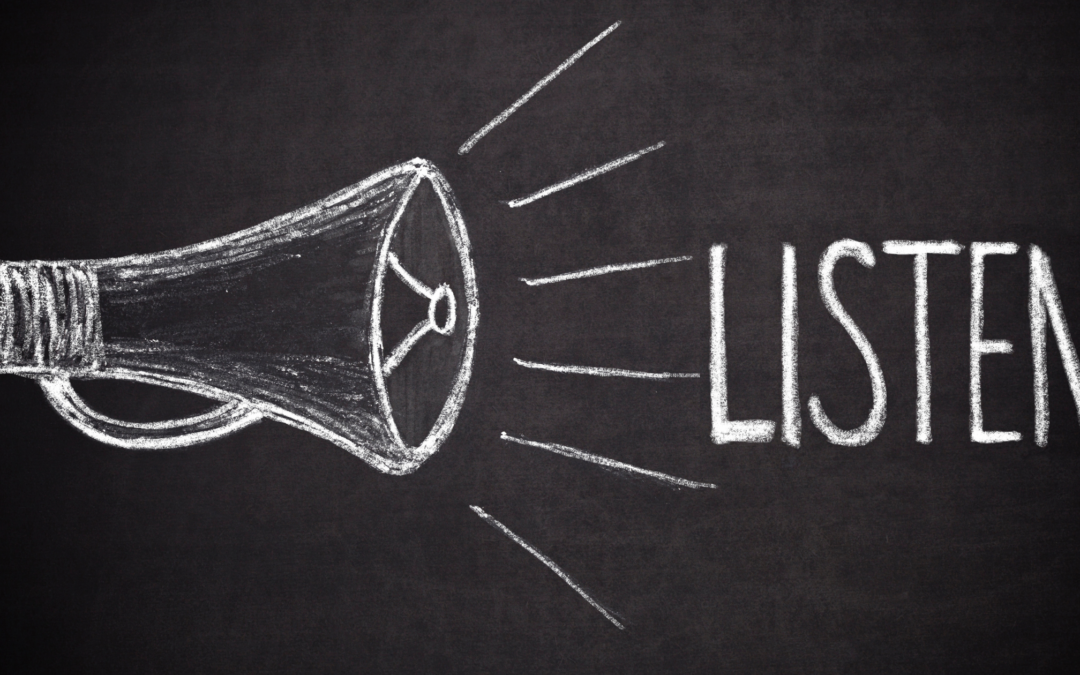We all know how important communication is in our lives, but we often forget that it’s not just about sharing our thoughts; it’s also about truly understanding what others have to say. So, let’s get right into it! Read on to learn more about how to be a good listener.
Why Is Listening Important?

Picture a puzzle with two pieces – this is how you can think of a conversation. One piece represents sharing, and the other represents listening. Both are equally essential for completing the puzzle or having a successful conversation.
When we say ‘sharing,’ we mean expressing our thoughts, feelings, and ideas. This is an important part of any communication. Whether we’re sharing what we did during the day, our dreams for the future, or simply our opinion about a movie we just watched, this expression makes up one-half of the conversation.
The second part, ‘listening,’ is equally vital, and perhaps sometimes, even more, important. Why? Because everyone yearns to be heard, to be acknowledged. We want others to understand our perspectives and respect them. That’s why being a good listener plays a significant role. If we can pay close attention, show interest, and respond appropriately to what the other person is saying, we can help them feel valued and respected.
 But here’s a key point to remember – our emotions or state of mind can influence how we communicate. If we’re upset, stressed, or distracted, we might not express our thoughts as clearly as we would like. At the same time, these feelings can prevent us from listening well. The other person might not understand our intention, or we might misinterpret what they’re saying.
But here’s a key point to remember – our emotions or state of mind can influence how we communicate. If we’re upset, stressed, or distracted, we might not express our thoughts as clearly as we would like. At the same time, these feelings can prevent us from listening well. The other person might not understand our intention, or we might misinterpret what they’re saying.
And the result? A confusing and frustrating conversation that might not lead to any meaningful or productive conclusion. You see, without a common understanding or mutual respect, it’s hard to anticipate a positive outcome from any conversation. That’s why it’s so crucial to be mindful of our communication skills, how we express our ideas, and how we listen to others. Only then can we complete the puzzle of a successful conversation.
Becoming A Good Listener
Now that we know the importance of listening, let’s explore some basics to become better listeners:
Enhancing Your Empathy:
To truly become a good listener, you have to develop and strengthen your empathy skills. Empathy allows you to put yourself in someone else’s shoes, so you can truly understand what they’re feeling and saying. This doesn’t mean just hearing their words, but also noticing their body language and emotions. This deep level of understanding promotes effective communication and creates strong bonds of trust and respect between people. Therefore, growing your empathy skills is essential in being a good listener.
Recognizing Emotion in Speech:
How a person says something can be just as important as what they are saying. Changes in voice tone or pitch can provide hints about someone’s emotional state. Someone speaking loudly might be excited or angry, while someone speaking quietly could be nervous or shy. Therefore, actively listening to how words are spoken is another way to understand the speaker’s feelings more effectively.
Noticing Repeated Themes and Topics:
Oftentimes, people reveal what matters to them through repetition. They might keep coming back to a specific topic or theme, suggesting that it holds significant value in their thoughts or feelings. Therefore, if a person keeps talking about a certain topic, that might mean they care about it deeply or they are seeking solutions or answers regarding it. As a listener, recognizing and acknowledging these patterns can enhance our understanding of the speaker and allow us to connect on a deeper level.
Asking Questions:
Asking questions shows interest and encourages the speaker to share more. It also keeps our minds engaged and helps us truly comprehend what the other person is saying. But remember, asking questions shouldn’t be just a ploy to wait for our turn to speak. It should be done with genuine curiosity and consideration for the other person’s needs.
Clarifying Misunderstandings:
We may not always understand what the speaker is trying to convey. So, don’t be afraid to ask for clarification if something is unclear or confusing. Just make sure your tone is respectful and not dismissive. Remember, effective listening involves understanding, and sometimes that means asking for a little extra help to comprehend a person’s viewpoint. That way, not only does it validate their thoughts, but it also deepens our knowledge and connection with them.
 Being a good listener is not just about waiting for our chance to talk or giving advice. Sometimes, it’s about being there for someone to vent and share their feelings without judgment or interruption. It’s a delicate balance, but with practice, we can master the art of listening.
Being a good listener is not just about waiting for our chance to talk or giving advice. Sometimes, it’s about being there for someone to vent and share their feelings without judgment or interruption. It’s a delicate balance, but with practice, we can master the art of listening.
Just like we continuously improve our speaking skills throughout life, we can also enhance our ability to listen. As we become better listeners, we strengthen our understanding of others’ needs, which, in turn, helps us become better conversationalists.
So, how do you practice becoming a better listener?
Start Therapy to enhance Communication Tools in North Carolina
Communication can be complex and confusing. Communication tools are both instinctual and learned. Our team understands the importance of continuously working on communication tools to maintain or improve relationships, and our therapists can offer support. We believe that you deserve it. Get started with therapy at our counseling practice in New Bern, NC with these steps:
1.Fill out this consult form.
2.Read about our skilled therapists.
3.Begin cultivating stronger relationships!
Other Services at Renewed Wellness
At our New Bern, NC-based therapy practice, we are happy to offer support for a variety of mental health concerns. Our team offers mental health services including therapy for anxiety and stress. Our therapists specialize specifically in chronic illness counseling and addiction counseling. For those going through a life change, we also offer life transitions counseling. Let’s work together to get you to a good place!

